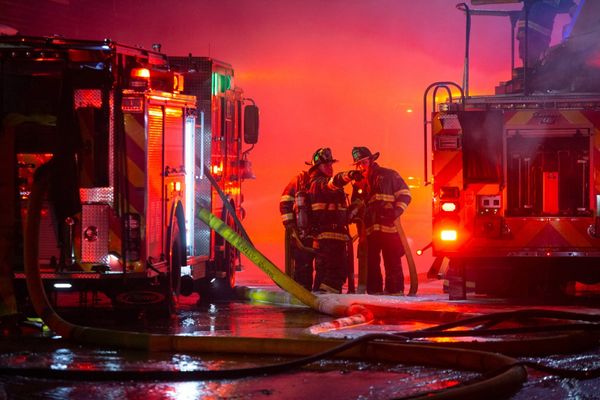US President Donald Trump on Sunday hinted at the possibility of regime change in Iran, questioning the future of Iran’s ruling theocracy.
Trump's social media jab at the regime in Iran came after he ordered a surprise attack on three of the country’s main nuclear sites, raising the risk of a broader war in the Middle East amid warnings from his supporters at home and allies and foes from abroad.
“It’s not politically correct to use the term ‘regime change,’ but if the current Iranian Regime is unable to make Iran great again, why wouldn’t there be a regime change,” Trump posted on social media.
His comments seemingly contradicted an earlier call to Iran for negotiations and de-escalation in the Israel-Iran conflict.
Trump's words also marked something of a reversal from his US Defence Secretary Pete Hegseth’s Sunday morning news conference that detailed the aerial bombing. “This mission was not and has not been about regime change,” Hegseth said.
'We're not at war with Iran'
Speaking on Fox News on Sunday, US Secretary of State Marco Rubio warned that any retaliation against the US or a rush toward building a nuclear weapon would “put the Iranian regime at risk.”
Rubio explained that what the US administration has made clear is that it wants Iran to stop any development of nuclear weapons.
“We’re not at war with Iran,” US Vice President JD Vance said in a separate interview with NBC. “We’re at war with Iran’s nuclear program.”
According to him, the strike offers a chance to restart stalled talks on reducing Iran's nuclear program.
Despite the efforts of Trump's senior aides to clarify the situation and establish a coordinated message and strategy regarding US involvement or plans, Trump himself has made a series of threatening statements, even as he has simultaneously called for restarting negotiations.
Analysts believe the messaging makes it hard to get a complete read on whether the US president is simply taunting an adversary or using inflammatory words that could further widen the fighting between Israel and Iran that began earlier this month.
Before Trump's post on Sunday afternoon, the coordinated messaging from Trump's secretary of state, top military adviser, vice president, and head of the Pentagon indicated a belief that any fallout would be controlled.
The Israel-Iran conflict began on 13 June when Israel attacked Iran's military infrastructure, killing a number of Tehran's top commanders, including the country's intelligence chief Mohammad Kazemi and his deputy Hassan Mohaqiq, and several prominent nuclear scientists.
Iran responded with ballistic missiles and drone attacks on Israel, but Iran's military capabilities are believed to have been severely decimated after Israel's aerial campaign that took out much of Tehran's air defences and missile launchers.
At least 950 people have been killed by Israel's strikes on Iran, according to figures from a Washington-based group, Human Rights Activists, and 27 people have died in Israel from Iran's retaliatory strikes.







